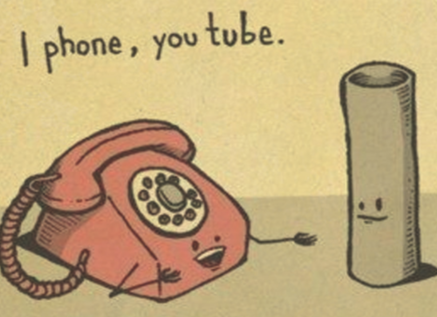
We’re not short of jokes these days. Comedy, from classic slapstick to professional stand-up routines, can be accessed in a matter of seconds through the Internet. The rise and spread of Internet subculture has also added to the general perception of humor, and what it does or does not constitute. But among this mass of traditional and modern forms of humor quietly squats one type that deserves more than the instant of attention typically allotted to everyday jokes. This is the subtle and generally more refined humor that is wordplay.
There are numerous types of wordplay, but they all rely upon manipulating letters and exploiting the meanings and ambiguities of words to create humor.Since wordplay primarily jokes through form, rather than directly through meaning, it is fairly accessible, easy to understand, and applicable to different situations.In fact, wordplay can be considered a convenient condiment used to spice up any talk, text, or exchange of ideas. Below are several of its most popular types.
Anagrams
Definition: The formation of new words by rearranging the letters of another.
Examples:
- The Morse Code – Herecome dots
- The Hurricanes – Thesechurn air
- Election results – Lies, let’s recount
- The meaning of life – The fine game of nil
Palindromes
Definition: A word, phrase, or sequence that reads the same backward as forward.
Examples:
- Racecar
- A man, a plan, a canal – Panama
- Doctor Reubenstein was shocked and dismayed when he answered the ringing telephone, only to hear a strange, metallic, alien voice say: "Yaseciovneilacillatemeg! Nartsaraehotylnoenohpeletgnig, nirehtderewsnaehnehw. Deya! Msid! Dnadekcohssawnietsnebuerro, tcod?" (Not quite legitimate)
Spoonerism
Definition: A verbal error in which a speaker accidentally transposes the initial sounds or letters of two or more words, often to humorous effect, named after Reverend William Spooner (1844–1930) who was supposedly known for these "slips of the tongue."
Examples:
- “Do you like that book?” —> “Do you bike that look?”
- "A pack of lies” —> “A lack of pies”
Lipogram
Definition: A composition (typically rather lengthy) in which the writer systematically omits a certain letter or certain letters of the alphabet.
Examples:
- Georges Perec’s1969 novel La Disparition was devoid of the letter “e” (the most frequently employed letter in French, as in English). But perhaps more impressively, Gilbert Adair’s English translation of the work, entitled A Void, also obeyed the same restriction.
- A work is univocalic if it is constrained to only employing one vowel-letter. One example is Christopher Bok’s novel Eunoia (2001), which is divided into five sections, each of which employs only one of the five vowels.
Pun
Definition: A joke playing on the different meanings of a word or words that sound alike (and has a reputation of inducing groans.)
Examples:
- Owls are a hoot!
- Atheism is a non-prophet organization.
- A person sent ten different puns tovarious people, with the hope that at least one of the puns would make them laugh.
- No pun in ten did.
Tom Swifty
Definition: Another type of pun, in which an adverb following a line of dialogue refers both properly and "punningly" to the speech.
Examples:
- "I only have diamonds, clubs and spades," said Tom heartlessly.
- "I have a split personality," said Tom, being frank.
- “Where are my pants?” asked Tom briefly.
The snippy nature of wordplay, which generally takes the form of a phrase or one-liner, allowsit to be easily integrated into various forms of text. It packs an equal punch on its own as well. The trick is discerning which contexts are appropriate for or forgiving towards the occasional play on words. Those in search of a deeper engagement with the playful nature of words can turn to word games such as Boggle or Scrabble.
Wordplay takes on numerous forms, whether it be indulging in a terrible pun or immersing oneself in a stack of crossword puzzles. All of these activities appreciate the magical act that is stringing together independently meaningless symbols (letters) to create and communicate intricate meaning. For entertainment and enlightenment, look no further than the nearest dictionary.
This article originally appeared in the September 2012 issue of UNIT-E. It was written by Amanda Song, a student at the International School of Beijing.
About UNIT-E
UNIT-E was founded in the spring of 2010 with the aim of establishing a non-profit, student-run magazine for international students in Beijing. Staffed by current students from a range of international schools, the magazine provides an amalgam of cultural tidbits, fragments of Beijing student life, and a broad spectrum of unique perspectives from a diverse group of young adults.



